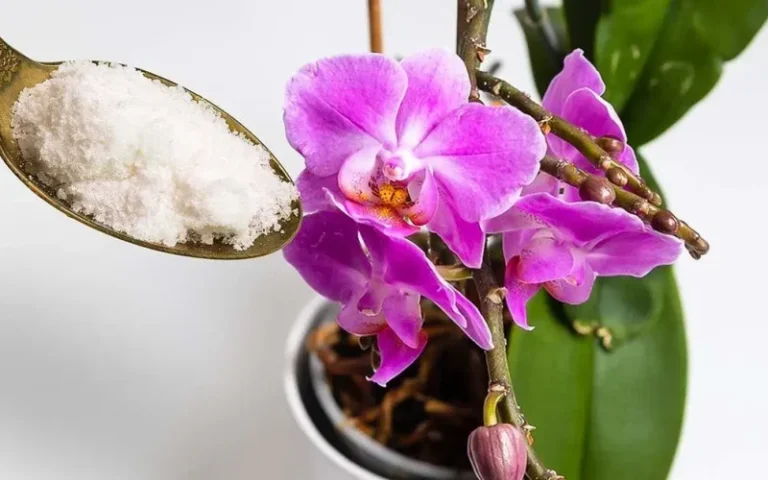ADVERTISEMENT
This natural method can help your plants grow strong and healthy. Here’s how to prepare a garlic-based fertilizer:
- Boil a cup of water and let it cool down.
- Add a teaspoon of garlic powder to the cooled water.
- After a few minutes, strain the mixture and dilute it with about a liter of water.
- Water your orchid with this solution twice a week.
Alternatively, you can sprinkle garlic powder directly on the soil every two weeks or gently rub the leaves with a garlic-soaked cotton swab. Prevention is key when using treatments to combat pests and promote healthy orchid growth.

Tips for Orchid Care and Flowering
Orchids may seem delicate, but with the right care from the beginning, they can be easy to maintain.
Culture Mix: Use a mix of coarse perlite, fir bark, and sphagnum moss for orchid growth.
Light: Orchids need bright, indirect light. Avoid direct sunlight, which can lead to poor blooming or leaf burn.
Temperature: A cooler night temperature (about 15 degrees cooler than daytime) helps promote flowering.
Watering: Water orchids sparingly and let them dry between waterings. Use the finger test to check soil moisture before watering.
Humidity: Maintain a humidity level of 50-60%. Use a water-filled saucer or tray of pebbles underneath the plants to increase humidity, or mist them daily.
Fertilization: Fertilize regularly during active growth and reduce during maturity and dormancy.
Pests and Diseases: Watch out for scale insects and aphids. The garlic solution mentioned earlier can be an effective natural remedy.
Repotting: If your orchid stops blooming despite care, consider repotting every two years to allow root growth.

Pruning Orchids Post-Flowering
Proper pruning is crucial for orchid care post-flowering. Here’s what to keep in mind:
Healthy Stems: Cut green and firm stems using clean, disinfected secateurs or blades.
Dead Stems: Prune wilted, yellow, or brown stems to the base to encourage root growth.

By following these guidelines, you can enjoy the beauty of your orchids for many years. Choosing natural fertilizers like garlic is also an economical and eco-friendly alternative to chemical products.
